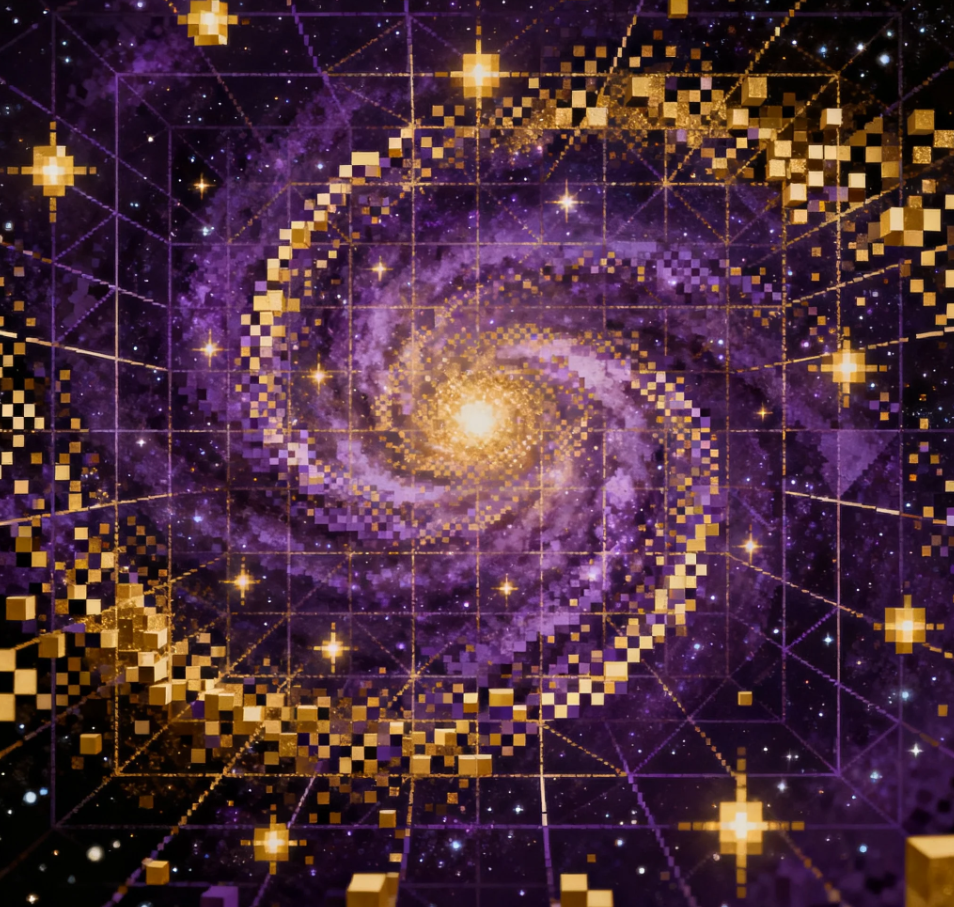Are We in a Simulation? A Critical Exploration of the Modern Hypothesis
Every era generates a question that captures its anxieties and ambitions. For our time—an age defined by digital technology, artificial intelligence, and immersive virtual worlds—the question is this: what if everything we perceive, from the warmth of sunlight to the feeling of curiosity that brought you to this page, is part of an elaborate computer simulation?
The “simulation hypothesis,” as it is known, suggests that the physical universe may be an artificial construct, an advanced computational environment created by a civilization far more technologically sophisticated than our own. The idea seems lifted from science fiction, yet it has gained surprising traction among philosophers, physicists, and technologists. Examining this hypothesis requires a journey through ancient philosophy, cutting-edge science, and profound questions about meaning and existence.
Philosophical Ancestry of a Modern Question
Long before anyone imagined silicon chips or quantum computers, philosophers speculated that reality might not be what it seems. Plato’s Allegory of the Cave described prisoners mistaking shadows for the real world, suggesting that our senses might provide only a filtered representation of a deeper truth. Seventeenth-century thinker René Descartes introduced the famous “evil demon” thought experiment, proposing that a malicious entity could deceive us into believing in a fabricated world. Later, the “brain in a vat” scenario posed a similar challenge: if a brain were kept alive in a laboratory and fed electrical impulses identical to those of normal life, how could it know it was not experiencing reality?
These philosophical arguments share a common thread: our perceptions are not guaranteed to match objective reality. The simulation hypothesis modernizes this skepticism by replacing demons and vats with powerful computers. It invites us to consider whether advanced beings—or even our own descendants—might create entire universes indistinguishable from the one we inhabit.
Nick Bostrom’s Trilemma
The contemporary debate owes much to Oxford philosopher Nick Bostrom, who in 2003 presented a logical argument known as the “trilemma.” Bostrom suggested that at least one of the following statements must be true:
- Almost all civilizations at our level of development go extinct before reaching a “posthuman” stage capable of running large-scale simulations of conscious beings.
- Advanced civilizations that do reach such a stage are not interested in running ancestor simulations.
- The probability that we are living in a simulation is close to one.
If we assume that technological progress continues and that at least some civilizations would be curious enough to simulate their ancestors, the third statement follows logically. In other words, if it is possible and someone will eventually do it, statistical reasoning implies we are probably inside such a simulation right now.

Arguments that Support the Simulation Hypothesis
1. Fine-Tuning of Physical Constants
The universe appears exquisitely calibrated for life. Slight variations in fundamental constants—such as the strength of gravity or the charge of the electron—would render life impossible. Proponents argue that this fine-tuning might be better explained if these constants were deliberately set by designers, much as programmers set parameters in a virtual environment.
2. Quantum Mechanics and Digital Reality
At the quantum level, reality behaves in ways that seem to defy classical intuition. Particles exist in superpositions until observed, as though the act of measurement “collapses” possibilities into a single outcome. Some physicists and computer scientists have playfully compared this to a video game rendering only the portion of the environment the player currently views—an efficient strategy for conserving computational resources.
3. Advances in Computing and Virtual Worlds
The trajectory of technological progress strengthens the plausibility of future simulations. From photorealistic video games to immersive virtual reality, our own creations increasingly blur the line between real and digital. If we extrapolate centuries ahead—imagine quantum computers manipulating information at scales unimaginable today—it becomes difficult to rule out the eventual capability to simulate entire universes complete with conscious inhabitants.
4. Information as a Fundamental Substrate
Some theoretical physicists, including John Archibald Wheeler with his famous phrase “it from bit,” propose that information lies at the core of physical reality. If the universe is fundamentally informational, then describing it as a computational process is not far-fetched. Space-time itself might be discrete, like pixels on a screen or bits in memory.
Counterarguments and Scientific Challenges
Falsifiability and the Limits of Science
A central objection is that the simulation hypothesis may be impossible to test. If every observation is itself part of the simulation, no empirical evidence could ever confirm or refute the idea. In science, a theory that cannot in principle be falsified is often regarded as metaphysics rather than physics.
Energy and Computational Constraints
Running a universe-scale simulation is not trivial. Recent astrophysical analyses have estimated that faithfully simulating the quantum interactions of even a small region of space would require inconceivable amounts of energy and computational power. Unless the simulators possess technology far beyond anything we can imagine—perhaps exploiting unknown physical laws—the resource demands could be prohibitive.
Motivations of the Simulators
Why would an advanced civilization expend such effort? To study history? For entertainment? To preserve consciousness? Without a credible motive, the hypothesis begins to resemble speculation rather than a reasoned inference. Critics argue that assuming unknown beings with unknown goals weakens the explanatory power of the theory.
Occam’s Razor
Philosophers often invoke Occam’s Razor: the simplest explanation consistent with the data is usually preferable. Our observations are already explained by physical laws as we know them; adding a layer of cosmic software engineers may be unnecessary unless we discover specific anomalies that cannot be reconciled otherwise.
Scientific Efforts to Detect a “Glitch”
Despite these challenges, some scientists have proposed experiments to search for evidence of a discrete or “pixelated” reality. For example, studies of high-energy cosmic rays could reveal patterns inconsistent with a smooth space-time continuum. Others suggest that certain quantum gravity effects might betray an underlying computational lattice. So far, no such signatures have been confirmed, but the mere possibility of testing the hypothesis keeps the conversation alive.
Cultural Resonance and Popular Imagination
Part of the simulation hypothesis’s appeal lies in its cultural context. Movies such as The Matrix, Inception, and television series like Westworld invite audiences to question the nature of reality. These stories resonate because they merge technological anxieties with timeless philosophical questions about free will and perception. The hypothesis also dovetails with the growing influence of digital life: when billions of people spend hours in virtual spaces each day, the idea that our own reality might be virtual feels less alien.
Ethical and Existential Implications
Suppose, for the sake of argument, that we are simulated. How would that alter our understanding of morality and purpose?
- Free Will: If our actions are lines of code, do we genuinely choose, or merely follow prewritten scripts?
- Responsibility: Would ethical behavior matter less if our universe were “just a game,” or would the experience of suffering and joy remain significant regardless of its ultimate substrate?
- Search for the Programmer: Some draw parallels to theological concepts—designers resemble deities, though perhaps indifferent ones. Does the hypothesis repackage religious intuition in technological language?
These questions highlight that meaning can persist independently of metaphysical status. A simulated life can still contain authentic relationships, creativity, and moral worth. From this perspective, the value of existence does not depend on what lies beneath the code.
Beyond the Binary: Rethinking Reality
Interestingly, accepting that reality might be a simulation does not necessarily diminish it. If the universe is an immense computational process, it remains wondrous. Whether electrons are “real” particles or data structures in a cosmic computer, their patterns inspire the same awe. In fact, seeing the cosmos as information processing could inspire new scientific models, uniting physics and computation in unexpected ways.
Some thinkers even suggest a multi-layered reality, where simulations spawn further simulations. Just as today’s virtual worlds can host their own simple simulations, an advanced civilization might create countless nested realities. This infinite regress leads to strange but fascinating possibilities: perhaps the “base reality” is forever inaccessible, or perhaps no such foundation exists at all.

Practical Takeaways for the Present
While the hypothesis remains unproven, contemplating it can sharpen our understanding of technology and consciousness:
- Technological Humility: The idea reminds us that future computing power may dwarf our current imagination, cautioning against underestimating long-term innovation.
- Philosophical Curiosity: Questioning the nature of reality encourages critical thinking and intellectual humility, essential skills in an era of rapid change.
- Ethical Focus: Whether simulated or not, the capacity to reflect, choose, and care for others is real to us. Our ethical obligations remain.
Perhaps the greatest lesson is that meaning is something we create, not something bestowed by cosmic programmers. Even if a simulation underlies the stars, our experiences—love, art, discovery—are authentic within the frame of our consciousness.
Closing Reflections
The simulation hypothesis straddles the border between philosophy and science, speculation and testable theory. It captures the zeitgeist of a digital civilization, blending ancient skepticism with the language of modern computing. Whether or not we dwell inside a cosmic server farm, exploring the idea reveals much about ourselves: our fascination with technology, our desire for ultimate answers, and our ability to find wonder in any reality.
So, are we in a simulation? Perhaps the more important question is not whether our universe is rendered by code, but how we choose to live within it—because for us, the experience of reality, however it arises, is all we have and all we need.


